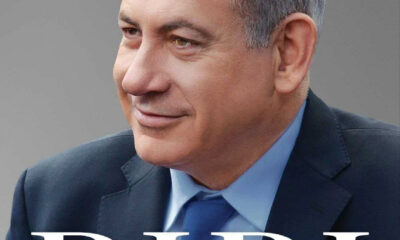
Israel

Riding a tiger – what could go wrong for Bibi?
Israel’s polls closed hours ago, and it will take a day or two to get the final results, but every vote counts – even more so in such a close election.
In Israel’s electoral system, you have to get a certain percentage (3.25%) of the votes to be in the allocation process for representatives in the Knesset. Four Knesset seats is usually the minimum, or nothing.
In this election – the fifth in the past four years – too many parties are close to this threshold. My comments are based on four different exit polls of the Israeli media channels I worked with late into the night (on Tuesday, 1 November) after the polls closed.
In all four samples, the direction is loud and clear: Benjamin Netanyahu and his bloc are closer to getting a majority in Israel’s parliament. It means that the deadlock after three years and five elections has been broken.
In that case, Bibi and Likud would be able to form a pure right-wing government backed by his three other allies: two haredi ultra-Orthodox parties and one “religious Zionism” party. Those are the natural partners.
Because of the number of votes, Netanyahu could block any other option of an alternative coalition. Under the current direction of the results, it seems Bibi has a better deck of cards to play with.
On the other side, you find that some of the factions are disparate and still struggling to be in the race and reach enough votes: the right-wing parties who oppose Bibi personally; the centre and left parties; and two to three Arab parties. Their nightmare of getting even a few votes under the needed threshold isn’t yet over. But even if most of them survive, it seems that the overall number won’t stop Netanyahu from getting into the prime minister’s office again.
It’s not going to be a landslide or clear and solid victory. Don’t buy those declarations. That’s what politicians are supposed to say just as the polls close.
Like any good democracy, in this run, one side crossed the line a millisecond before the other, with a few more votes. Israel didn’t fundamentally change on the night of 1 November 2022.
On one side, the runner came better prepared, concentrated, and ready – and probably won. On the other, a bunch of runners together – but not really a team – wished for too many miracles simultaneously to reach the line. Not even in order to win, just to finish alive.
What can we say about the results, even with no official outcome yet?
Religious Zionist party leader Bezalel Smotrich and Otzma Yehudit’s leader, Itamar Ben-Gvir, and their extreme-right-wing parties had a joint run, gaining tremendous support of probably 12 to 15 seats in the Knesset. This works out to be more than 10% of the Knesset. Their formal brand name is “The Religious Zionism” but its constituency represents more the “hardal” (haredi-religious-Zionists) – the stricter side of religious Zionists.
The other “spice” and ingredient in this highly controversial dish is Itamar Ben-Gvir – the rockstar of the election campaign. His slogan was, “Let’s show who the real bosses and landlords of this country are.” With a gun in his hand, he arrived at scenes of recent terror attacks and shouted this message at Arabs.
In the past four decades, Ben-Gvir has been the provocateur of the far, far right. Now, he wants to be minister of homeland security. This is the person who stole the emblem off Yitzchak Rabin’s car a few months before he was assassinated. At the time, he said on camera, “We got this sign, and we can get you.” In his living room, Ben-Gvir also proudly hangs a photograph honouring Baruch Goldstein who murdered 29 Muslims in the Cave of the Patriarchs massacre in Hebron.
Ben-Gvir is the true successor of the Kahana racist, fascist, extreme-right movement. The only difference is that its original leader, Meir Kahana, was boycotted even by the then Likud prime minister. The prime minister left the hall with all members of the Knesset in order not to hear Kahana’s addresses. Now, his follower is the kingmaker and a popular figure in the media and on the street.
What does it say about the Israelis who followed him with so much support? It’s shocking and all too similar to hear those kind of results for the Economic Freedom Fighters in South Africa or for similar extreme-right-wing parties in Italy, Sweden, or France.
Nationalism, xenophobia, and the lack of personal security are key factors everywhere. It’s the voice of this era and generation – we have to listen to its fears and distress.
The success of a Ben-Gvir in Israel raises more questions about populist leaders, poor media, and fragile democracies than about the Israeli society.
What does it say about Netanyahu’s new government? Bibi is responsible for the legitimisation of Ben-Gvir. Netanyahu personally urged in previous elections acceptance of this extreme faction into the political pact in order to get few more votes to his side. He was riding a tiger, and created a poisonous mixture. Now he’ll get a taste of his own medicine.
Bibi might prefer partners from the centre-right like Benny Gantz’s HaMachane HaMamlachti, but no-one from that party or the others (for that matter), trusts Bibi anymore. He has stabbed all his potential moderate partners in the back.
Another more critical reason why other potential partners – other than Likud natural allies the extreme-right wing with Ben-Gvir and Smotrich and the haredim – aren’t relevant this time is that they cannot back Netanyahu’s plans for “judicial and legal reforms”. In other words, they won’t back him in stopping his criminal trial.
It’s too close to call, but we’ve seen enough to say that Netanyahu has won, but it’s not his victory. The Likud probably got the same support and even less than previous elections. It’s Ben-Gvir who gained support from fresh electorates and brought a crucial addition to Bibi’s block.
And on the other side, the split among Arab parties and within other Zionist parties meant they didn’t quite make it to get enough seats to block Bibi. That’s democracy. Not “may the best person win”, only the better person.
Netanyahu, like a sphinx, will rise and rule again. He recently celebrated his 73rd birthday. He’s already the longest serving Israeli prime minister. And he’s in court for three charges of corruption that’s being heard on a daily basis. He also has solid opposition to him personally, politically, and publicly. Now he has a lunatic political partner. It can’t go wrong!
That is, unless he decides to make it his last tenure, one in which to “clean up” and leave a glorious legacy with a deal or a plea. Unfortunately, it seems he’ll be more tempted to adopt Hungary’s Orban or Turkey’s Ardegan models, changing the vibrant democracy of Israel. Too close to call.
- Zvika (Biko) Arran is a publicist, social entrepreneur, lawyer, advisor to philanthropists, and has been in Israel briefly, working on the elections. He lives in Johannesburg with his wife and four sons.











Tanya shever
November 4, 2022 at 5:54 pm
Sorry but in a democracy the people speak.
Israel does not want a left government.
You have yo accept this. Now of course the majority want a more centrist government but Gant, lapid et al won’t join the likud, but prepared to join with arab parties who do not accept Israel as a Jewish state. Isn’t this worse?